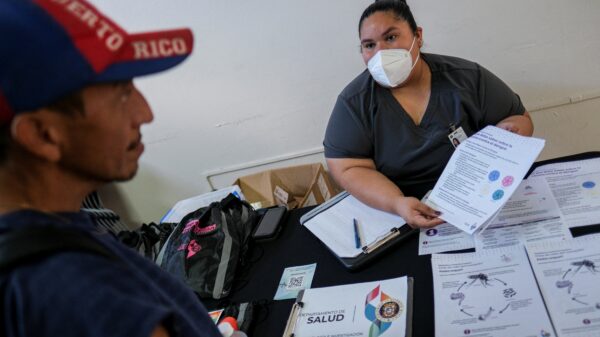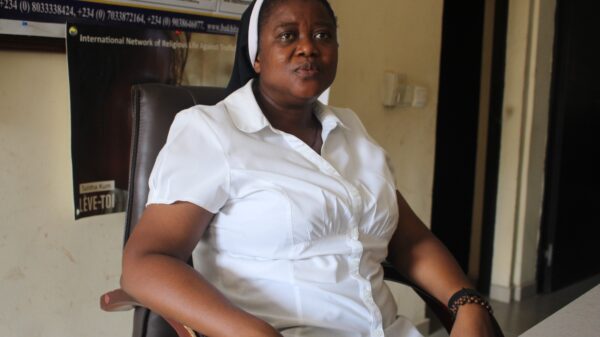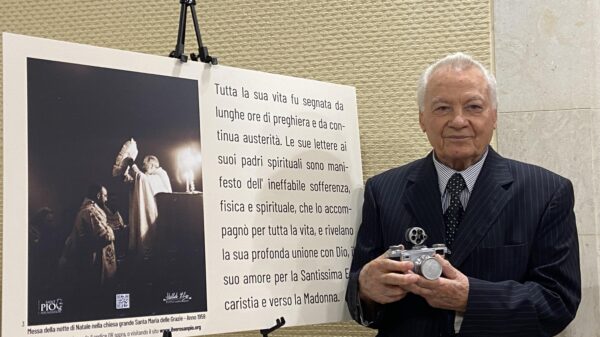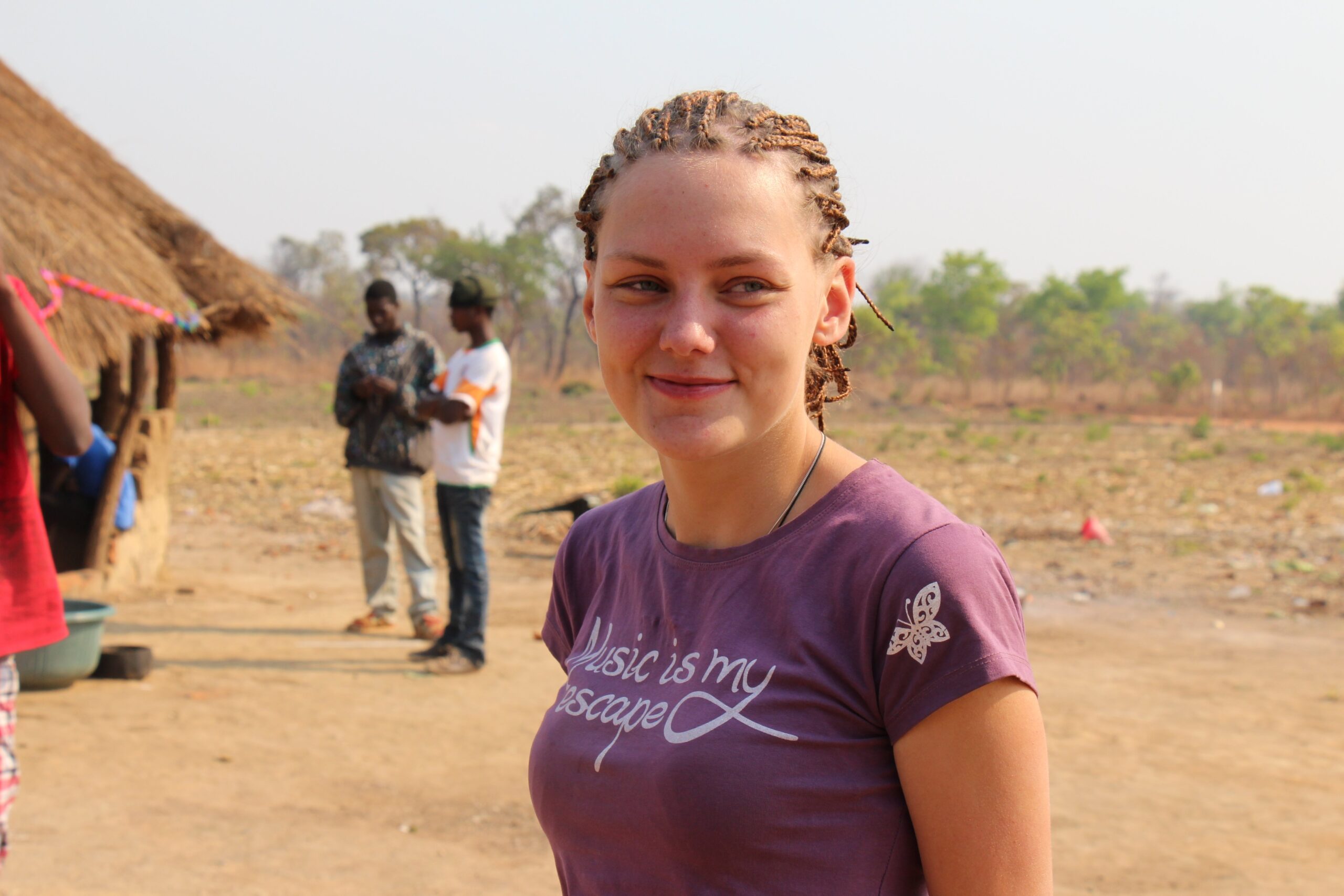(OSV News) — Poland’s church is seeking the beatification of a young lay missionary, who was stabbed to death in a bungled robbery shortly after starting work with Catholic nuns at a children’s home in Bolivia in 2017.
“In five years as a volunteer, she discovered her calling to spread the Gospel — and it gave her a sense of happiness and fulfillment, of being in God’s hands,” explained Father Pawel Wróbel, postulator in the missionary’s sainthood cause.
“Her life and example can show young people it’s possible to find your place in the church, despite what’s said today, sharing your God-given talents and convictions. It isn’t necessary to withdraw from the world.”
The priest spoke amid preparations for the May 10 start of beatification proceedings in Kraków for Helena Kmiec (1991-2017), who was killed, at age 25, by an overnight intruder at Cochabamba in central Bolivia.
In an OSV News interview, Father Wróbel said the beatification process, launched by the Polish bishops’ conference with Vatican approval, had been “met with joy” by Kmiec’s many friends and supporters, who were already submitting testimonies and recollections.
“The process will concern her heroic virtues — after analyzing evidence from her last moments of life, we concluded this wasn’t an act of martyrdom,” said Father Wróbel, a mission director with the Society of the Divine Savior, popularly known as Salvatorians.
“But this is also a sign from God that we must concentrate on her life rather than her death, not least since a miracle will be needed to confirm her sanctity.”
For beatification, the church conducts a thorough investigation of the person’s life and writings to determine whether he or she lived a life of heroic virtue, offered his or her life for another, or was killed for the sake of Jesus Christ. In
general, two miracles need to be accepted by the church as having occurred through the intercession of the sainthood candidate, one for beatification and one for canonization.
Meanwhile, the director of a foundation set up to continue Kmiec’s work said prayers for her beatification were helping those eager to preserve her memory.
“She was a truly exceptional person, who can inspire others to lead beautiful lives,” said Marta Omieczynska, from the Helena Kmiec Foundation, based at Trzebinia in southern Poland, who worked alongside the slain missionary.
“But she was also a normal contemporary girl, very present and close to people, with her own troubles and anxieties, not some distant saint, forever on her knees.”
Born in Krakow to a mother who died a few weeks later and a father who remarried, Kmiec attended Catholic schools in her Libiaz hometown, also attended at Leweston School, a boarding school in England, on a scholarship for two years, before completing an engineering degree at the Silesian University of Technology in Gliwice.
She joined the Salvatorians’ Missionary Volunteer Service during her studies, and was sent to Hungary in 2012 to teach children at a summer school, and to Zambia a year later to minister to street children and poor families in Lusaka, also working in 2014 among young people in Timisoara, Romania.
In a mission application, now preserved, Kmiec said she had received God’s grace in the form of “DDDDD – Dar Darmo Dany Do Dawania (A Gift Freely Given to Give)” and believed she had to share it.
“All the skills I have, the abilities I acquire, the talents I develop, aren’t meant to serve me, but to be used by me to help others,” the Catholic student said.
“The greatest gift is that I know God and can’t keep this to myself but have to spread it. If I can help someone, make someone smile, make someone happier, teach someone something — then I want to do it!”
Arriving at Cochabamba, a city of 630,000, on Jan. 8, 2017, Kmiec helped Polish nuns from the Congregation of the Servant Sisters of Debica complete work on a new orphanage, but was brutally murdered with 14 knife wounds just 16 days into her mission.
In an April 14 edict, Archbishop Marek Jedraszewski of Krakow said Kmiec had been raised in a home “filled with love, warmth and, above all, deep faith,” and took very seriously “the capacity to help and do good for others.”
He added that daily Mass attendance had been central to her life and spirituality, along with a “missionary zeal and calling,” and said veneration had spontaneously grown after her death around her “holy life devoted to God and the church.”
Father Wróbel, the postulator, said Archbishop Oscar Aparicio Céspedes of Cochabamba had agreed in 2022 to pass Kmiec’s beatification cause to her native Krakow Archdiocese, in response to requests by clergy and lay Catholics.
Meanwhile, Omieczynska, the foundation director, said young Catholics from all over the world had visited a stall devoted to Kmiec at the church’s August 2023 World Youth Day in Portugal’s capital, Lisbon.
She added that her “charismatic, missionary work in the church’s service” had been “very much founded at home and in her family parish,” and resembled that of Blessed Carlo Acutis (1991-2006), the London-born Italian teenage computer evangelist beatified in October 2020.
“Helena was authentic and never hid her own difficulties, which could irritate and make her cry,” said Omieczynska, whose foundation, set up in July 2017, provides lectures, concerts and exhibitions, as well as testimonies about Kmiec’s life, and funds educational and charity projects in Bolivia, Zambia, Tanzania and Mexico.
“Yet she always came back to God, always in the darkest moments, setting the kind of live example, in blood and bone, which young people need today. She reminds us we don’t have to go to the ends of the earth for mission work — it’s available close to home.”
In an OSV News interview, the missionary’s parents, Jan and Barbara, said they were encouraged by many accounts of how their daughter’s goodness and devotion had helped others, and had learned more about her from many messages received since her death.
They added that they had worried about her safety during her missionary work, especially in Africa, but had also been sustained by her upbeat humor and confidence.
“She was a modern girl who gave God first place, while living and enjoying life to the full in the real world,” Barbara Kmiec told OSV News. “It’s clear she had a well-organized hierarchy of values, which was still developing in her adult life.”
Kmiec belonged to Poland’s Light-Life renewal movement and did voluntary work with Caritas, also becoming a talented singer and guitarist through classes at Gliwice’s State Music Academy.
The missionary, who also worked briefly as a stewardess with the Hungarian-owned Wizzair airline, helped organize the 2016 World Youth Day in Krakow and planned to marry and start a family with her boyfriend after returning from Bolivia.
The funeral and burial of Kmiec, whose convicted killer was given a 30-year jail sentence without parole, was attended in Libiaz’s St. Barbara church in February 2017 by 120 priests, as well as state and government officials, and led by Cardinal Stanislaw Dziwisz, former secretary to St. John Paul II.
In his OSV News interview, Father Wróbel said news of the beatification process had revived public interest in the young missionary, who was posthumously awarded Poland’s Golden Cross of Merit.
He added that Kmiec’s parents and family were expected to be key witnesses before the Krakow tribunal, but said many other testimonies would also be examined relating to her “graces and intercessions.”
Omieczynska, the foundation director, said the lay Catholic’s brutal murder “wasn’t the end of her mission work, but just the beginning,” she told OSV News.
“The faith was very much alive for her, and she treated God as her best friend. And whereas she was intended for heaven, we’re here to continue her work through our many projects in Poland and abroad.”
Jonathan Luxmoore writes for OSV News from Oxford, England.











































